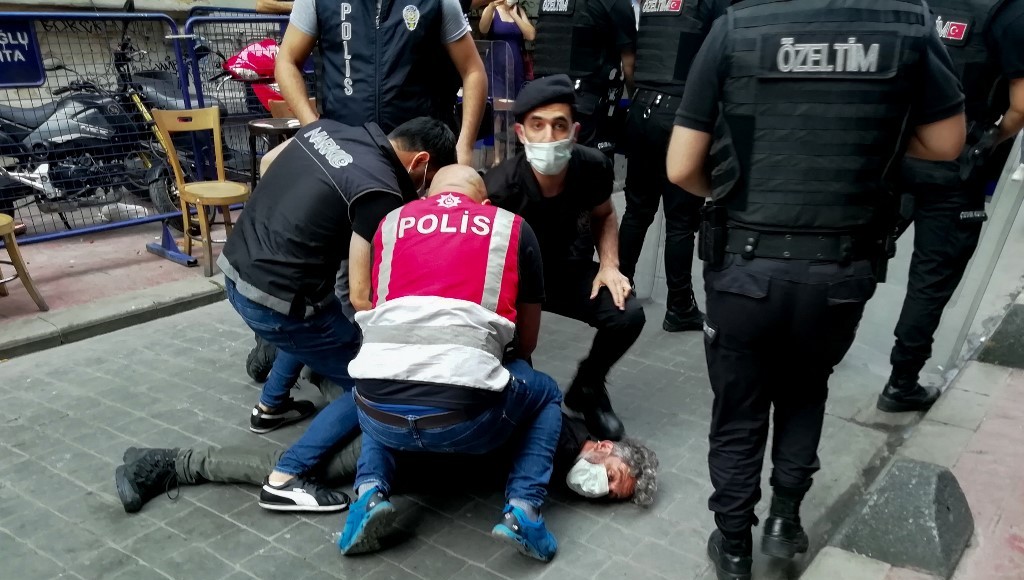Agence France-Presse (AFP) photojournalist Bülent Kılıç, who was brutally detained while covering the İstanbul Pride March in 2021, has been indicted on charges of insulting a public official and resisting arrest, while prosecutors have found no grounds to investigate the police officers who detained him, according to the Media and Law Studies Association (MLSA).
Officers hit Kılıç, an award-winning photojournalist for AFP, in the face with his camera and threw the camera to the ground, breaking it, and then pinned him to the ground by kneeling on his neck and back on June 26, 2021, according to an interview the journalist gave to the local Anka News Agency.
Kılıç’s eventful detention by the police sparked outrage and condemnation from national and international journalist associations.
MLSA lawyers filed criminal complaints on allegations of damage to property and intentional injury due to abuse of public duty in August 2021 at the İstanbul Chief Public Prosecutor’s Office against the two police officers who forcibly detained Kılıç.
The prosecutor’s office, however, decided not to investigate the police officers on the grounds that they acted in line with their scope of duty but drafted an indictment against Kılıç on charges of insulting a public official and resisting arrest. The indictment has been accepted by the İstanbul 19th Penal Court of First Instance.
In January an administrative court in İstanbul ordered the Ministry of Interior to pay Kılıç damages because the police used “disproportionate force” while detaining him in 2021.
The court had found that the police officers who detained Kılıç used “excessive force” and ordered the ministry to pay him a total of TL 30,095 ($1,600 at the time) in material and non-pecuniary damages.
It is common for journalists in Turkey, which has a poor record on freedom of the press, to face threats, physical attacks and legal harassment due to their work.
Rights groups routinely accuse the Turkish government of trying to keep the press under control by imprisoning journalists, eliminating media outlets, overseeing the purchase of media brands by pro-government conglomerates and using regulatory authorities to exert financial pressure, especially after President Recep Tayyip Erdoğan survived a failed coup in July 2016.
Turkey, which is among the top jailers of journalists in the world, was ranked 149th among 180 countries in the Reporters Without Borders (RSF) 2022 World Press Freedom Index.


